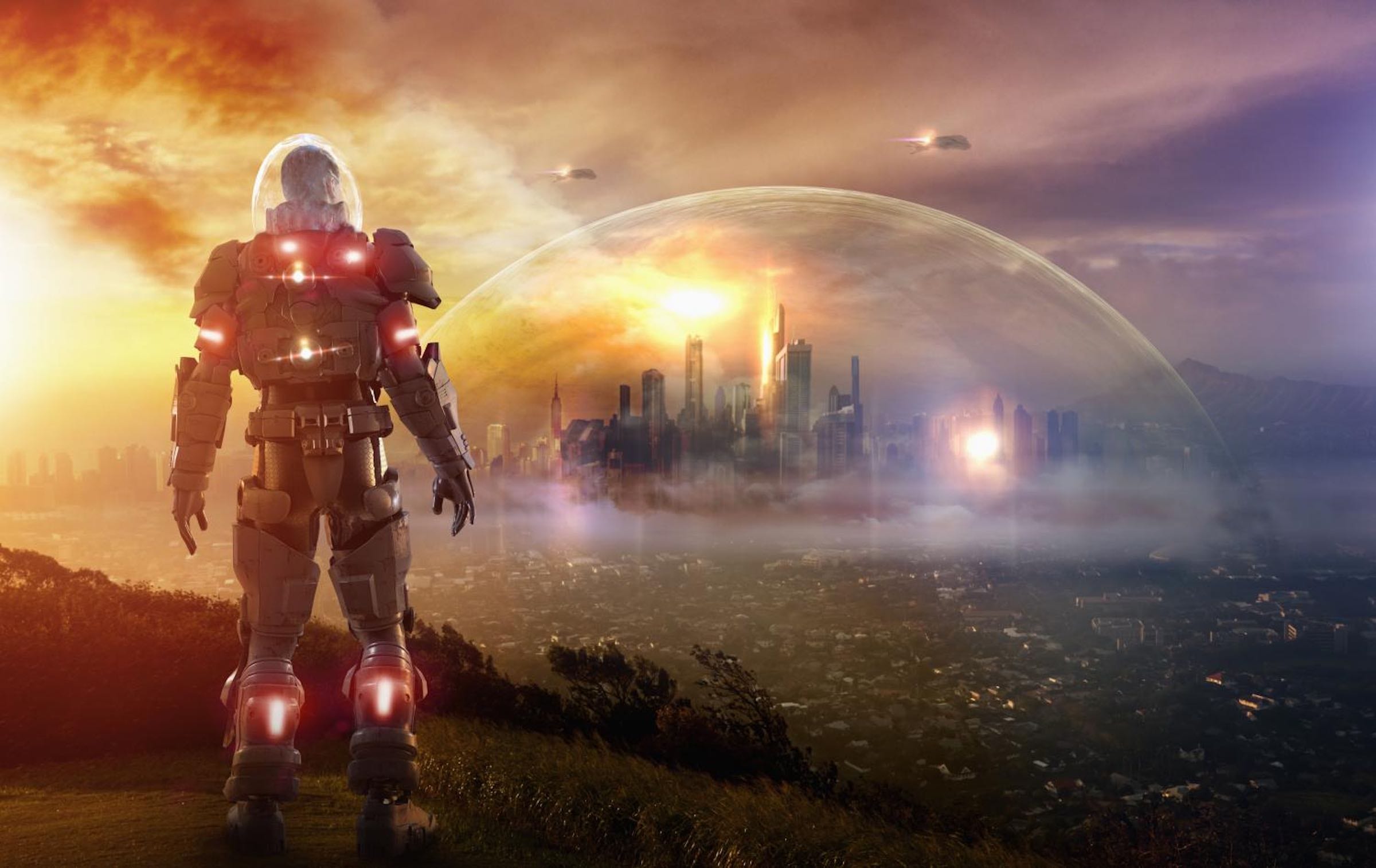
Vote now: Bingewatch Award for Best Sci-Fi TV Series of the 2010s
It’s absolutely wild that there’s only one month left of the decade, huh? The 2010s definitely proved to be an absolutely excellent time in the world of television sci-fi. From tales woven decades in the past to psychedelic trips through alternate universes, to the far reaches of space, fans have been given a smorgasbord of content to enjoy. Now we need to answer the question: which sci-fi show is the best of the decade?
That’s right, reader. It’s time for the fans to decide in the Bingewatch Award for Best Sci-Fi TV Series of the 2010s. We have a list of the decade’s best and brightest from 3% to Westworld, and it’s up to you to see your favorite show come out on top.
Check out the nominees below and be sure to call your favorite fandom to arms! Which series will come out on top for the Bingewatch Award for Best Sci-Fi TV Series of the 2010s? Only time (and dedicated fandoms) will tell.
Be sure to vote quick, however, nominee voting will end on Monday, Dec. 9 at 12pm PST.
Vote now
The 100 (The CW)
The 100 definitely provided a lot of influence in terms of fan engagement during the 10s. Following the death of beloved character Lexa (Alycia Debnam-Carey), a huge conversation over the “bury your gays” trope exploded online. It proved so needed that ClexaCon came into existence from the fan reaction and ensuing discussion.
The 100 is a dystopian series that follows a group of young people sent down to Earth, which suffered a nuclear event about a century before. Led by Clarke Griffin (Eliza Taylor), the group tries to navigate the society that sprung up when the ancestors went to space and forge ties on Earth.
There are a lot of turns in The 100, which was given a prequel by The CW. It is a gripping drama that lasted seven seasons for very good reasons.
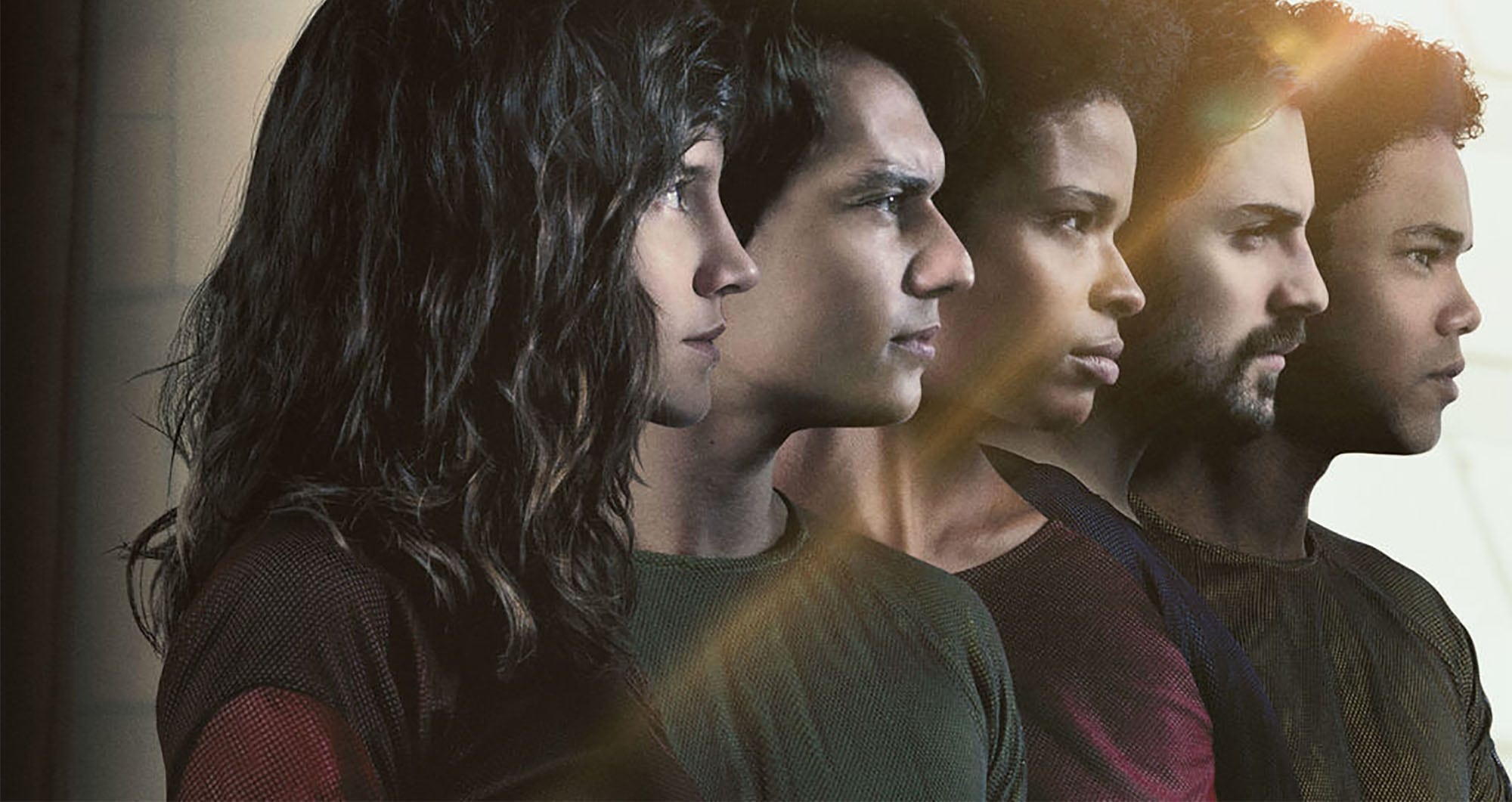
3% (Netflix)
3% is a Brazilian dystopian thriller that proves sci-fi is not just for American television. In an unspecified future, the people of the impoverished Inland are offered a chance to undergo The Process so they can get a better life on the Offshore. Unfortunately, only 3% survive The Process. Yes, we know what we said.
Like all great sci-fi, 3% uses its world in order to explore real world issues such as classism and poverty. Add in a rich tapestry of characters and a compelling story, it’s no wonder that the series has lasted for three seasons on Netflix with an extremely dedicated fanbase.
3% provides a unique perspective to the sci-fi genre, which is largely Anglo-centric in terms of television and film. Between the perspective and its strong story, it’s definitely one of the freshest sci-fi shows of the decade.

Altered Carbon (Netflix)
Altered Carbon takes you firmly into cyberpunk territory. Cyberpunk describes a genre of sci-fi that combines low-life and high tech. While there are features of advanced technology, it’s almost always combined with a radical change in social order. That fits Altered Carbon to a T.
In the future of Altered Carbon, a person’s memories and consciousness can be decanted into a special disk. It then can be uploaded to a synthetic body, which means that the rich are functionally immortal. Former rebel Takeshi Kovacs (Joel Kinnaman in season one) is given a chance at life if he solves the murder of wealthy Laurens Bancroft (James Purefoy).
With a unique concept, stylish world, brutal action, and compelling characters, Altered Carbon takes viewers on a journey full of twists and turns. There’s also a lot of exploration on identity and the concept of self. It definitely deserves so much love while we wait for its highly anticipated second season.
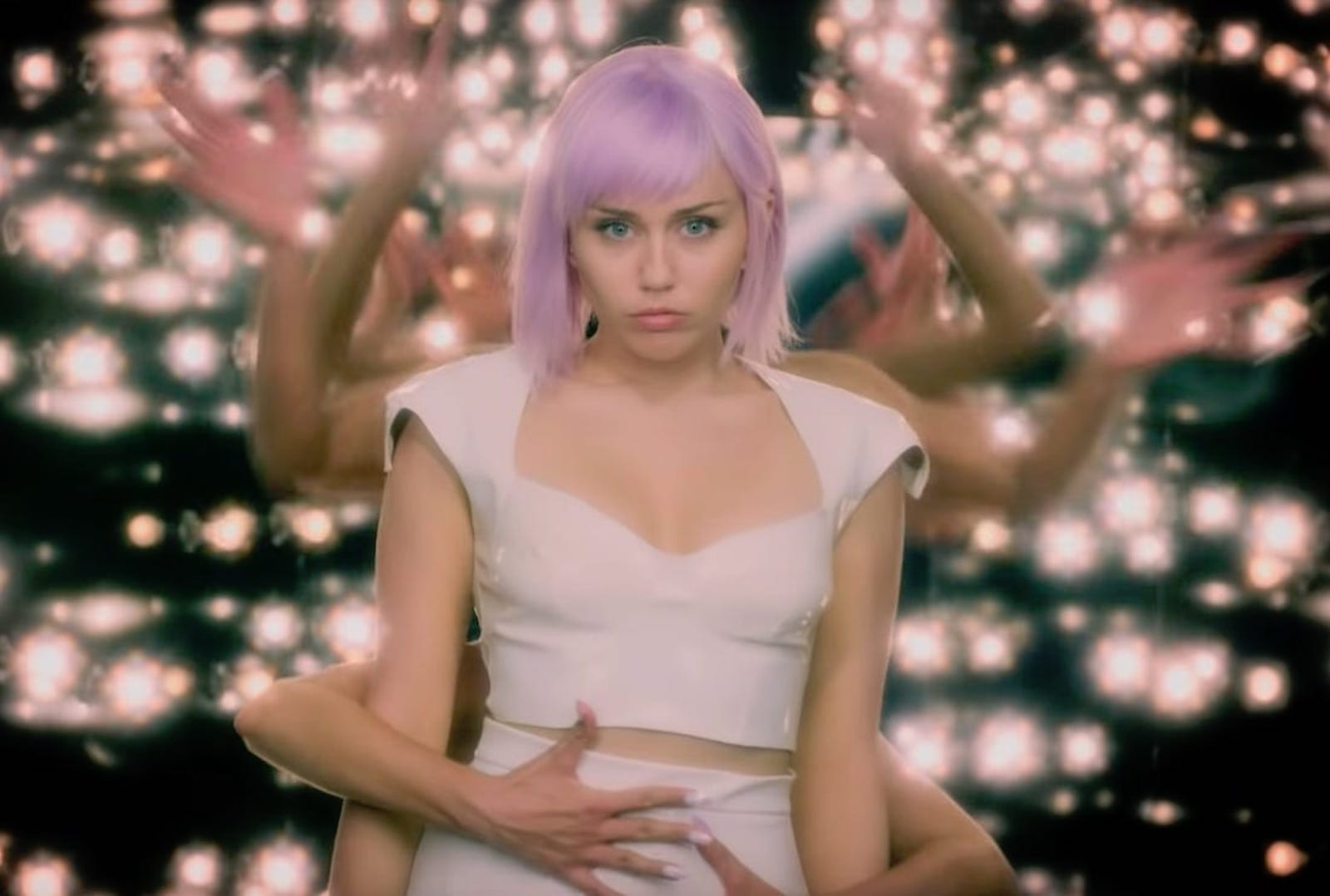
Black Mirror (Netflix)
The teens definitely have been a decade of the anthology show. While Ryan Murphy may have cornered the market, the largest cultural impact was felt by Charlie Brooker’s Black Mirror. Even though Jordan Peele revived The Twilight Zone, Black Mirror is the true successor to Rod Serling’s seminal work.
Black Mirror examines the effect of new technologies on society. While many of these examinations are very grim indeed, they are necessary to be told as technology becomes ever prevalent.
If Black Mirror wasn’t as amazing and culturally important as it is, it deserves to be on the list for its most hopeful and romantic episode “San Junipero”. It deserves to win be sci-fi series for that perfect episode alone. If “San Junipero” isn’t your tea, then consider the groundbreaking interactive episode of Bandersnatch.
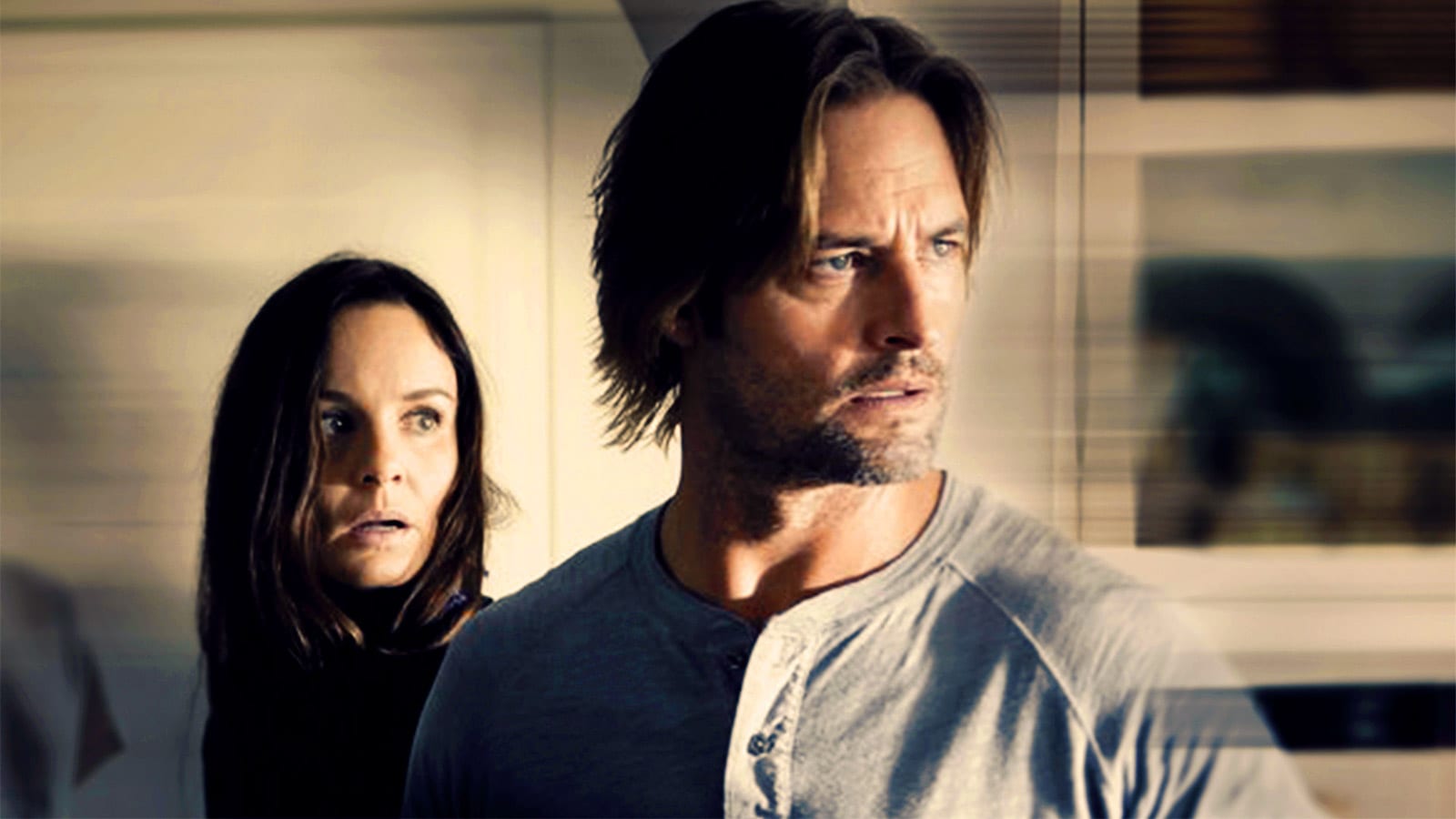
Colony (USA Network)
Sci-fi and dystopia do seem to go together like peanut butter and jelly, huh? Or, perhaps, Mulder and Scully would be a more apt simile here?
From The X-Files creator Carlton Cuse, Colony focuses on a group of people living in an alien controlled Los Angeles, which has been walled off by the aliens. Working for the aliens, known as Hosts, are the Transitional Authority, who keep the occupation running for the aliens and squash down any resistances that pop up.

The series lasted for three seasons on USA Network before being cancelled to the dismay of fans the world over. It was a favorite of Stephen King, who called the series: “smart, suspenseful, subversive… thought-provoking.”
We all know that cancelled series can triumph after their unjust and abrupt endings. Colony had an engaging mythos, great characters, and was clearly going somewhere really interesting when it ended. It definitely deserves love from its fans as the decades comes to an end.

Dark (Netflix)
Dark, the German-language Netflix series, does not have a dystopia. Instead this moody and atmospheric story is a mystery wrapped in a riddle with a lot of time travel poured on top.
Following disappearances of children in a small German town that keep happening each generation, Dark follows teenager Jonas Kahnwald (Louis Hofmann), police officer Ulrich Nielsen (Oliver Masucci), and police chief Charlotte Doppler (Karoline Eichhorn) as they each try to figure out what is going on in the town.

Dark is one of those gripping series that requires a poster board and string in order to unravel the characters relationships with each other and with time itself. For the uninitiated, we don’t want to spoil on iota of Dark’s plot because it really needs to be seen in order to be enjoyed.
Dark is definitely one of the most unique shows on television today from the way it handles time to the expertly unfolding narrative. It’s gripping and compelling in the best ways possible. The series has been compared to Stranger Things, but Dark is entirely its own show.

Dark Matter (Syfy)
Who doesn’t love a mystery or those classic sci-fi tropes such as evil alternate universe selves? Lucky for you, Dark Matter has both. This Syfy series follows a group of seven individuals (six people and their ship’s AI), who all wake up with zero memory of their past or their connections to each other.
What follows is a grand space opera as the crew of the Raza band together to figure out their past, take down corruption, and maybe save the universe. Dark Matter was unceremoniously cancelled by Syfy and wasn’t saved like The Expanse. It’s a shame because the series was constantly topping itself and deserved to, at least, have a wrap-up movie.
Dark Matter was compelling television: a homage to sci-fi series of the paths while being its own unique thing. It definitely deserves to end the decade with a bang.
Vote now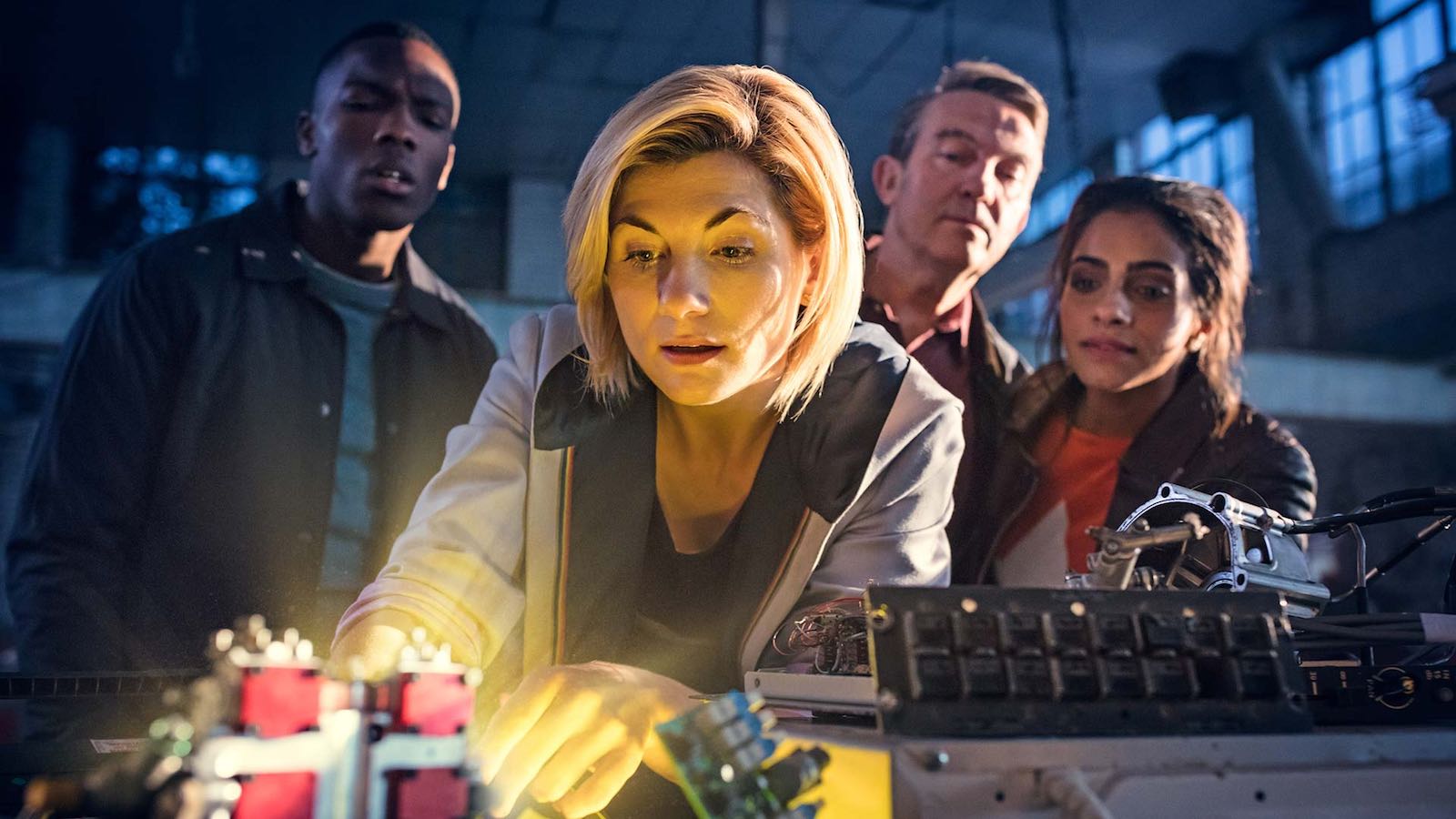
Doctor Who (BBC)
The 10s have been a banner decade for Doctor Who. Not only did Doctor Who marked an unprecedented 50 years on the air, the show saw a major spike in fandom. Whovians dominated the globe in teens, bringing forth a brand-new generation to love Old Who and New Who alike. In the end, it’s all Doctor Who.
During the 10s, Doctor Who had three actors take over the title role. Matt Smith, Peter Capaldi, and, the first female Doctor, Jodie Whittaker all brought their own unique touch to the Time Lord and garnered more fans for the series because of it. Doctor Who also brought Michelle Gomez as Missy (the female version of the Master) onto our screens and into our hearts. What’s not to love?
With Whittaker’s Thirteen and her time-traveling space fam back in Jan. 2020, it looks like Doctor Who has a lot left in it. Even so, it deserves all the Whovian love because Doctor Who is the best show across multiple decades. Let’s make it official for the 10s.

The Expanse (Syfy/Amazon)
The Expanse is a rare happy story for cancelled television shows, it was saved. The first three seasons of the popular space opera aired on Syfy before being canceled. Thanks to some really dedicated fans, Amazon picked up The Expanse for a fourth season. They even renewed it for a fifth season before the premiere of the fourth.
The Expanse, set in a future where humanity has colonized the Solar System, follows a group of disparate antiheroes in various planets as they unravel a conspiracy that puts the Cold War like fragile peace in major jeopardy. The Expanse weaves a tight and compelling story with amazing characters and some of the most beautiful visuals on television currently.
Given the fact that The Expanse was resurrected from the cancellation pile proves how much people believe in the story that The Expanse is telling.
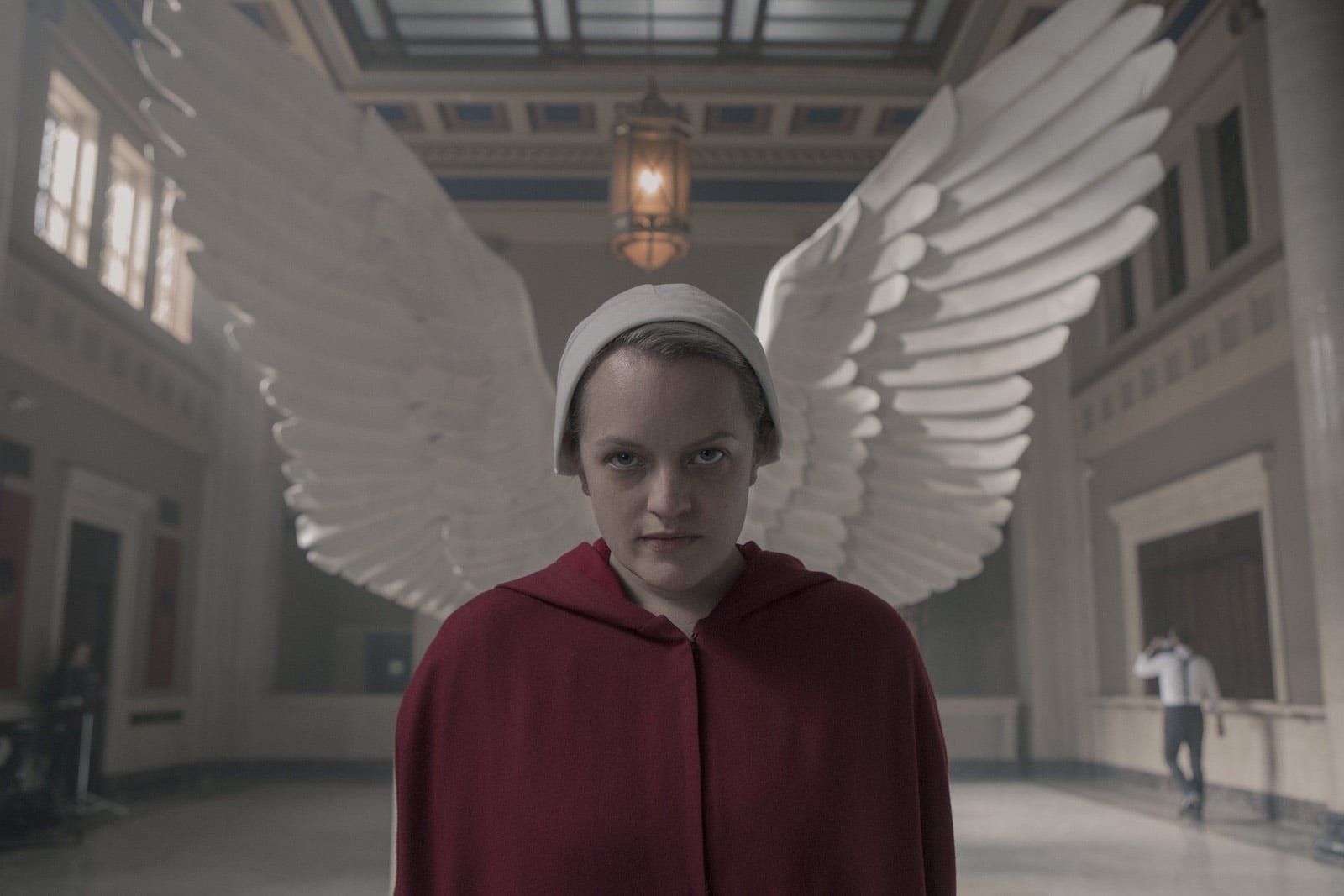
The Handmaid’s Tale (Hulu)
Adapted from the Margaret Atwood novel of the same name, The Handmaid’s Tale is set in a religious dystopia where women are second class citizens and the male elite rule.
We follow June (Elisabeth Moss), a Handmaid or a woman who is ritualistically raped by the couple that owns her in order to give birth to children for the elite. There we follow her journey as she struggles to survive in Gilead and tear down the system that put her in chains (so to speak).

The Handmaid’s Tale is both brutal and timely. It unflinchingly shows you the atrocities that are committed in Gilead over the course of June’s story. Moss herself leads an amazingly talented cast, but shines through the virtue of how she utterly embodies June and her story.
Sci-fi challenges us on how to make our world better. The Handmaid’s Tale definitely challenges the viewer to not stand idly by and to be the change they want to see. Otherwise, well, no one wants to live in Gilead.

Killjoys (Syfy)
Killjoys make some noise! Bonus points awarded if you get that reference. Killjoys is a Canadian sci-fi series that was co-produced by Syfy and CTV Sci-Fi Channel (formerly Space). Killjoys follows a group of hard-living bounty hunters…in space. Led by Dutch (Hannah John-Kamen), the three person crew go after the bounties while providing rich character work and a lot of fun for viewers along the way.
Killjoys recently wrapped its fifth and season in Sept. 2019. Needless to say, fan feels are running high. Unlike a lot of series here, Killjoys was able to wrap things up in a natural conclusion. At least, there’s that. Killjoys represented a thoroughly fun experience into watching sci-fi.
For some reason, sci-fi has taken an increasingly dark turn. Whenever there’s something that makes audiences feel like a kid again, such as Killjoys, then it definitely needs to be recognized.

Legion (FX)
Legion definitely blazes the frontier for a more artsy look at the superhero genre. Based off the X-Men character of the same name, Legion follows David Haller (Dan Stevens), a powerful mutant battling schizophrenia amongst other things. Legion itself is pretty hard to explain because it’s more of an experience over everything else.
Noah Hawley (Fargo) takes viewers on a psychedelic dive into David’s mind and offers a unique look into the X-Men universe. Hawley challenges the whole idea of how stories based on superhero properties can be told. Legion is one of the most visually stunning shows on the list. If you’re a fan of great cinematography, then the series is a must to check out. It’s a feast for the eyes.
Legion ended with its third season in 2019. The impact of the series has yet to truly be seen on the world at large. It definitely will leave with a lot to think about, which is what all great sci-fi is supposed to do.

Lost in Space (Netflix)
Lost in Space is pretty much the only remake on the list. (Well, it depends on whether or not you consider Westworld to be a remake.) Based on the 1965 series of the same name, Lost in Space offers a more grown-up and 2018 version of the camp classic show.
Lost in Space is much less campy than its older counterpart. Instead, we follow a Robinson family escaping Earth in the wake of cataclysmic event and a struggle for survival on an alien world.
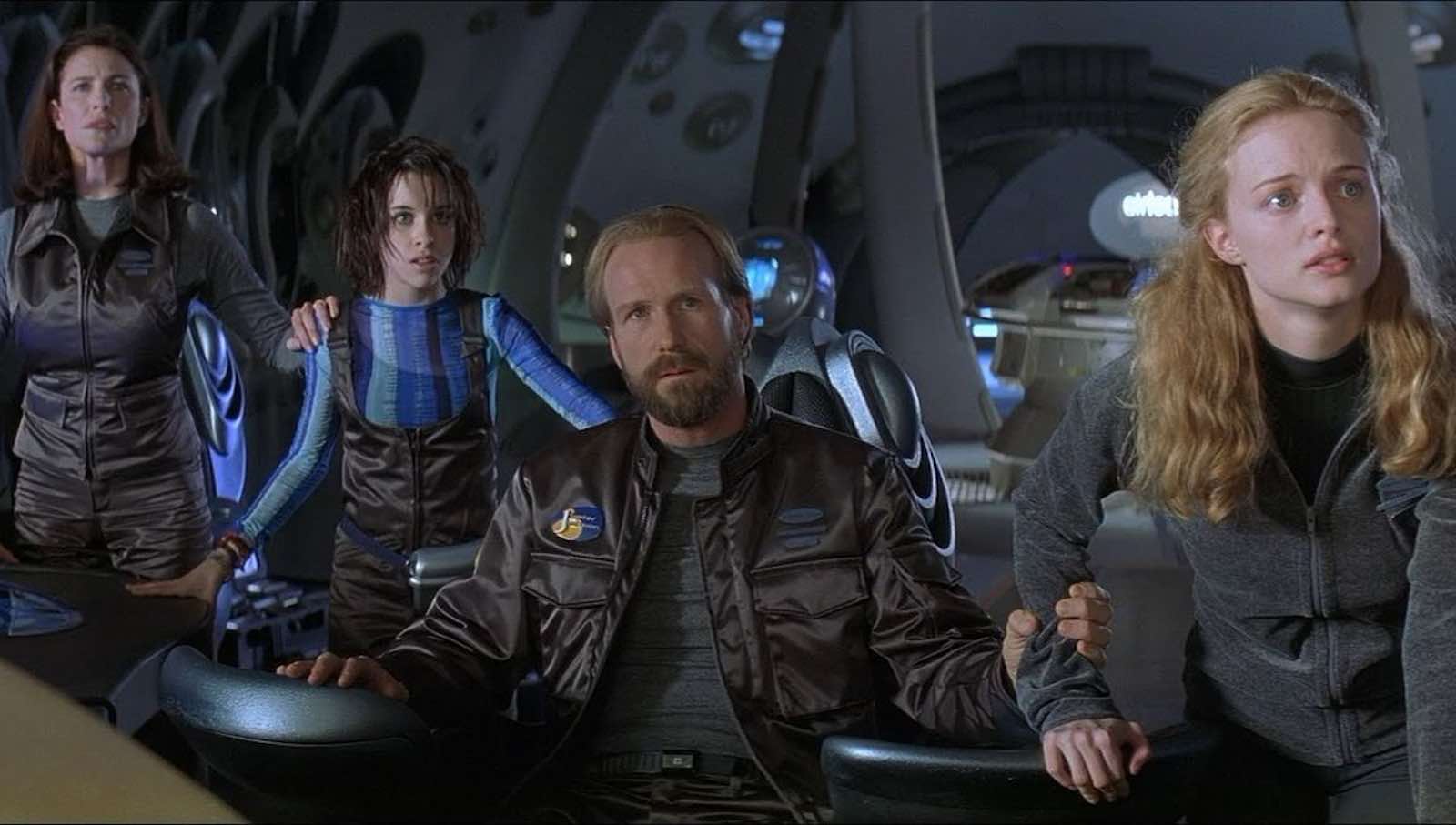
Lost in Space offers stunning visuals along with a story full of heart and family. It expanded and updated the classic characters in fresh and interesting ways for 2018. Also Lost in Space has a stellar cast who turn in some breathtaking performances of people just trying their best in the wake of disaster. Plus Robot (Brian Steele) kind of steals the show (and our hearts).
Lost in Space proves that remakes done by people passionate about the material and with sizable budget can do better than its predecessor.
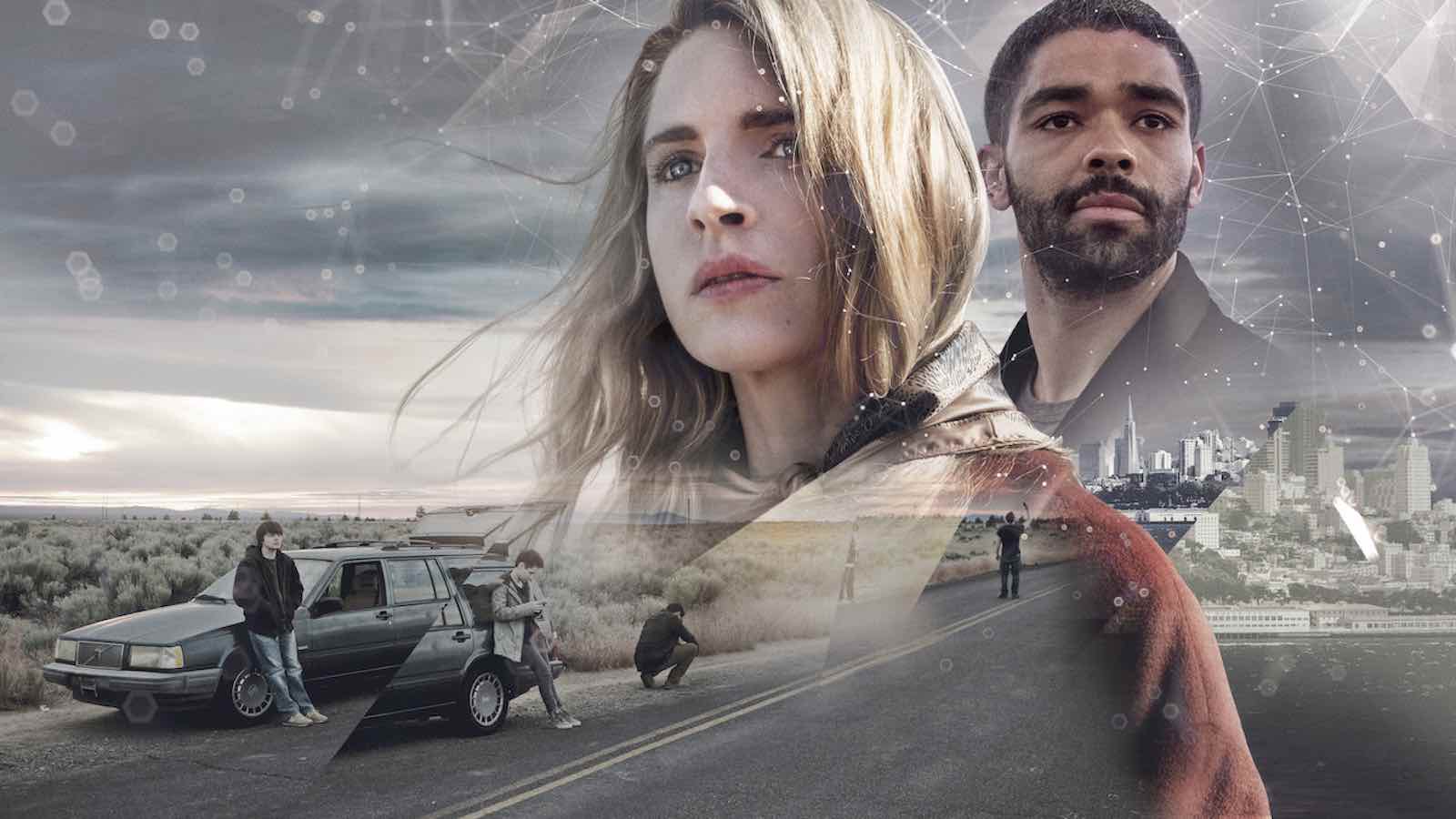
The OA (Netflix)
The OA is a series that almost defies description. It’s one of those shows that your best friend will insist that you need to see it to appreciate it. In this case, The OA really does need to be seen to be believed by audiences.
The OA follows Prairie Johnson (Brit Marling), a young woman who went missing for seven years. Upon her return to her family, she insists on being called OA (Original Angel) and can see. Why is that so special? OA was blind when she went missing as Prairie. She will only tell her story to five people (four high school students and a teacher). It’s definitely a wild ride from start to finish.
Alternate dimensions, the influence of technology on our lives, The OA covers all of these topics. There’s one episode in the second season that proves Zendaya should just win everything ever. Unfortunately, Netflix cancelled the series which remains a strange and odd gem to anyone who checks it out.
Vote now
The Orville (Fox/Hulu)
Inspired by Star Trek and The Twilight Zone, The Orville is a sci-fi dramedy following the crew of the titular ship. Ed Mercer’s (Seth MacFarlane) career with the planetary union took a beating following his divorce from his wife, Kelly (Adrianne Palicki). When he’s given a ship of his own to captain, he finds that his ex has been assigned as first officer. (Awkward.)
The Orville is a series with a so-so first season, but recovers beautifully by season two. Critics and audience praise the humor and character-driven drama. The Orville definitely earned a lot of fans with the needed and praised course correction. The third season of The Orville is set to premiere on Hulu in late 2020. It should probably stay on Hulu if fans have anything to say about it.

Sense8 (Netflix)
One of the biggest crimes against streaming subscribers happened when Netflix cancelled the beloved Sense8. Hailing from the minds of The Wachowskis and J. Michael Straczynski, Sense8 follows a cluster of sensates: eight strangers from around the world who are emotionally and mentally linked.
Sense8 follows the group as they try to understand their new situation while battling avoiding the Biologic Preservation Organization, who wants the cluster dead. Sense8 was one of Netflix’s most popular series before the unfair and unjust cancellation. More importantly, Sense8 was praised for its diverse representation and positive message about how we are all connected.
While Sense8 did receive a wrap-up movie, its cancellation is probably one of the biggest shames of the decade as a whole. There was still a lot more story to tell and dedicated group of fans ready and willing to watch.

Shadowhunters (Freeform)
Where you at, Shadowfam? It’s no secret that we here at Film Daily are championing hard for Shadowhunters to renew along with its legion of dedicated fans. Shadowhunters, based on the Mortal Instruments series by Cassandra Clare, follows Clary Fray who discovers on her 18th birthday that she is from a long line of Shadowhunters: human-angel hybrids who hunt down demons.
Shadowhunters, like many series here, gave great representation to the LGBT+ community along with other underrepresented minorities on television. Shadowhunters takes place in its own unique world that also feels familiar to the viewer. Finally, like all great sci-fi, Shadowhunters explores real world parallels through its own lens, such as prejudice, family, racism, sexism, and more.
Shadowhunters also gave birth to an extremely dedicated fandom who are trying their hardest to get the series back on air. The passion and dedication from the Shadowfam is definitely a once in a lifetime sort of thing.
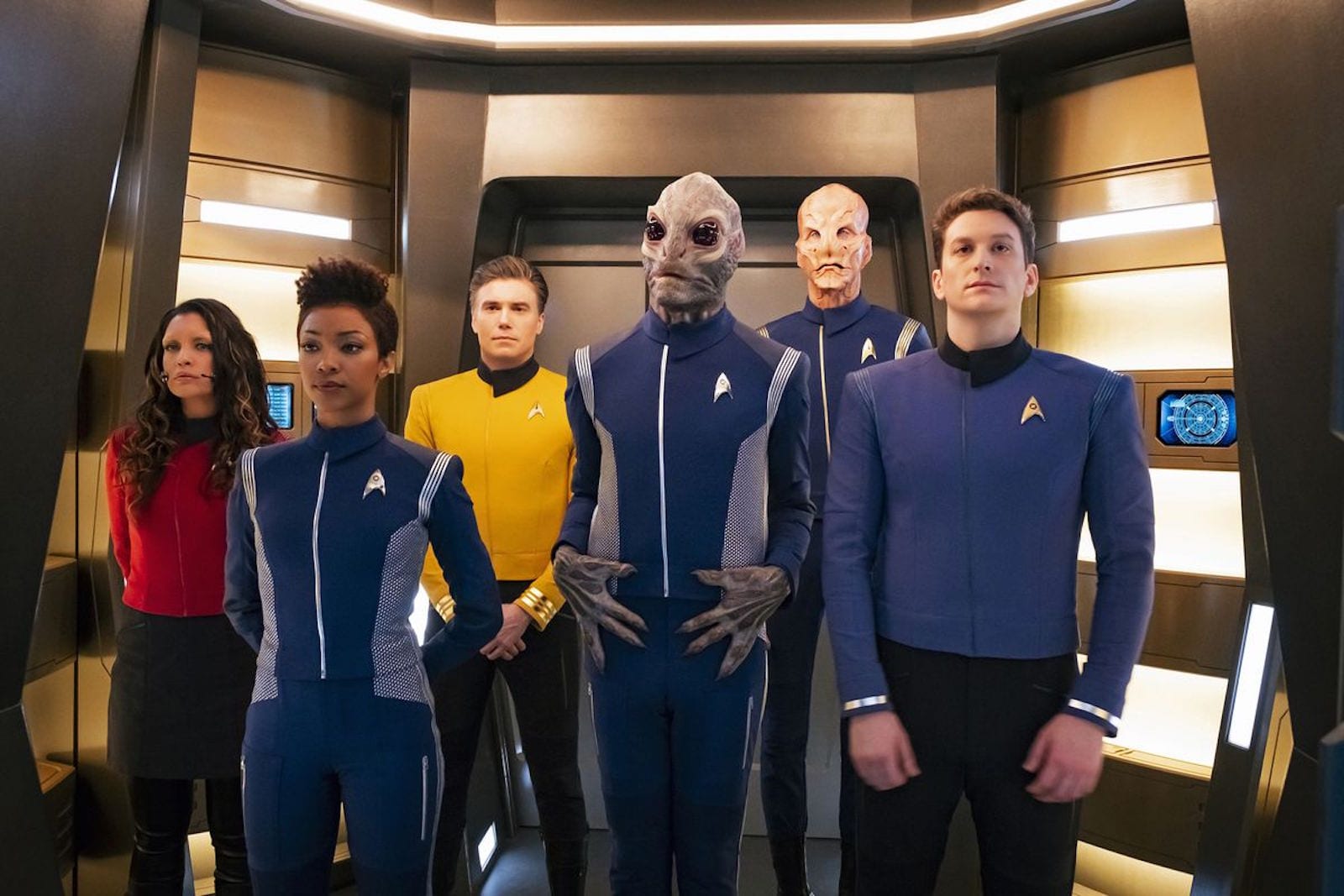
Star Trek: Discovery (CBS All Access)
Star Trek: Discovery marks the heralded return of Star Trek to television since Star Trek: Enterprise went off the air in 2005. Star Trek: Discovery follows Michael Burham (Sonequa Martin-Green), the previously unmentioned foster sister of Spock (Ethan Peck), and her adventures aboard the starship U.S.S. Discovery. The events of Discovery serve as a quasi-prequel to the original series of Star Trek.
Star Trek: Discovery is definitely a series that needed to get its legs before it turned into compelling television. Once it recovered, Star Trek: Discovery recovered beautifully. This is mainly thanks to the amazing performances from the talented cast, led by Martin-Green who has received acclaim for her performance as Michael on the series.
Much like Doctor Who, the impact of Star Trek is felt throughout generations. Why not give the latest entry a crown of its own?
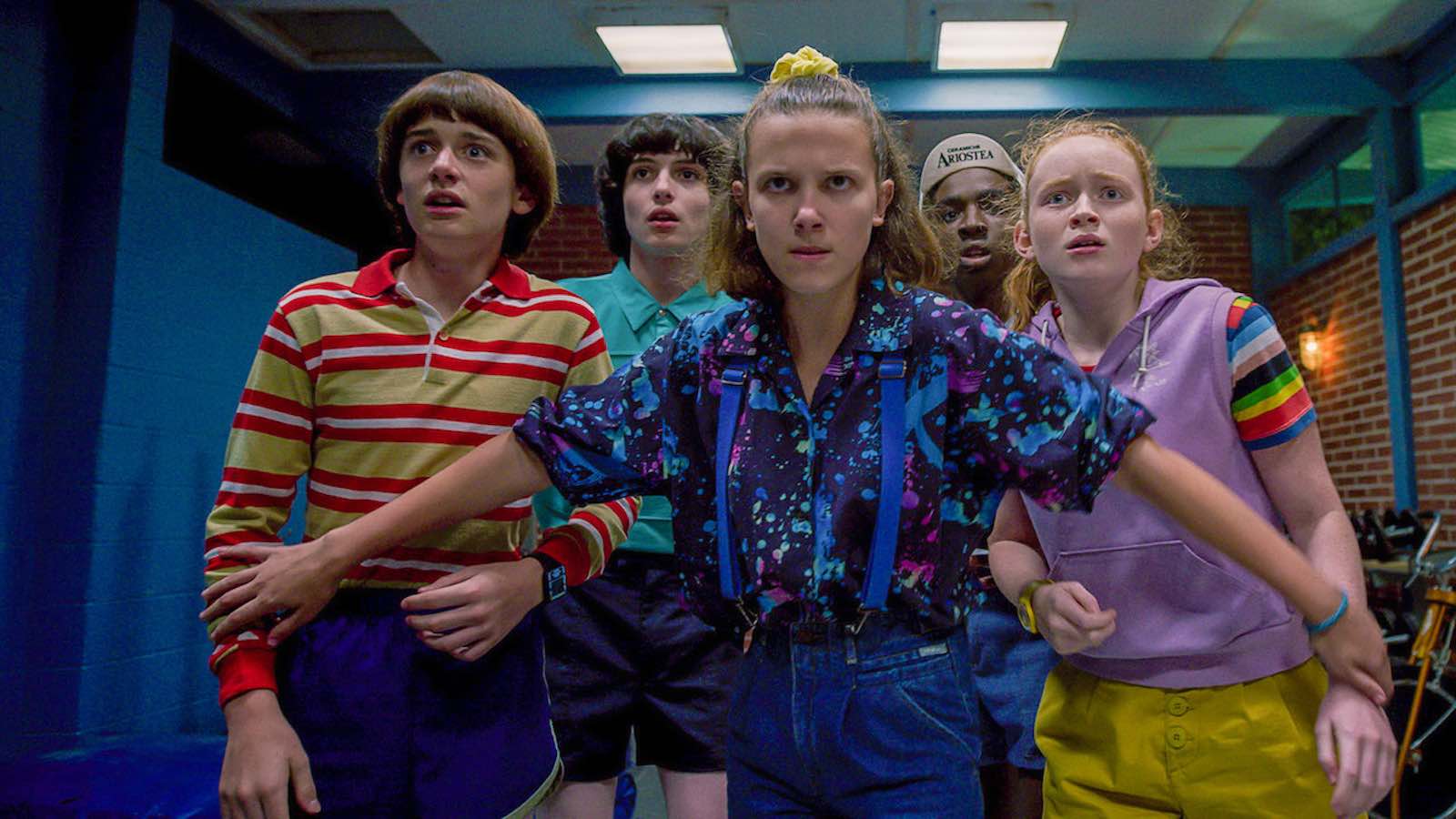
Stranger Things (Netflix)
Has there ever been a cultural juggernaut like Stranger Things? After the course of a single weekend in July 2015, it seemed like Stranger Things was on everyone’s lips.
Not only does it appeal to nostalgia, Stranger Things also takes inspiration from some of sci-fi’s best, like E.T. The Extra-Terrestrial and then combined it with The Goonies. What followed is a three season epic (with more on the way) about family, love, belonging, power, and more.
With Stranger Things season four ordered, the series has survived the Netflix cancellation spree of 2019. Stranger Things can safely be called a global phenomenon in a way that took established series like Doctor Who and Star Trek years to build. The young actors of Stranger Things have their pick of projects with breakout star Millie Bobby Brown even producing her own projects.
Stranger Things will definitely be remembered as a pop cultural phenomenon in the back half of the 10s.

The Umbrella Academy (Netflix)
The Umbrella Academy, adapted from the comic by Gerard Way, takes place in an alternate history where in the 1980s, a bunch of women the world over spontaneously became pregnant and gave birth within minutes. All of the children exhibit extraordinary abilities. Seven of these children are adopted by eccentric billionaire Sir Reginald Hargreeves (Colm Feore) and six become superheroes in their youth.
In the present day, Hargreeves is dead and the children have returned home to “mourn” his passing. When their missing brother Number Five (Aidan Gallagher) returns from the future, the group learns that the Apocalypse is nigh and they need to prevent it with all the family dysfunction you can expect.
The Umbrella Academy was praised for its deconstruction of the superhero genre, clever writing, and stellar cast performances. The scene where all the Hargreeves children dance to “I Think We’re Alone Now” is one of the best in the decade.
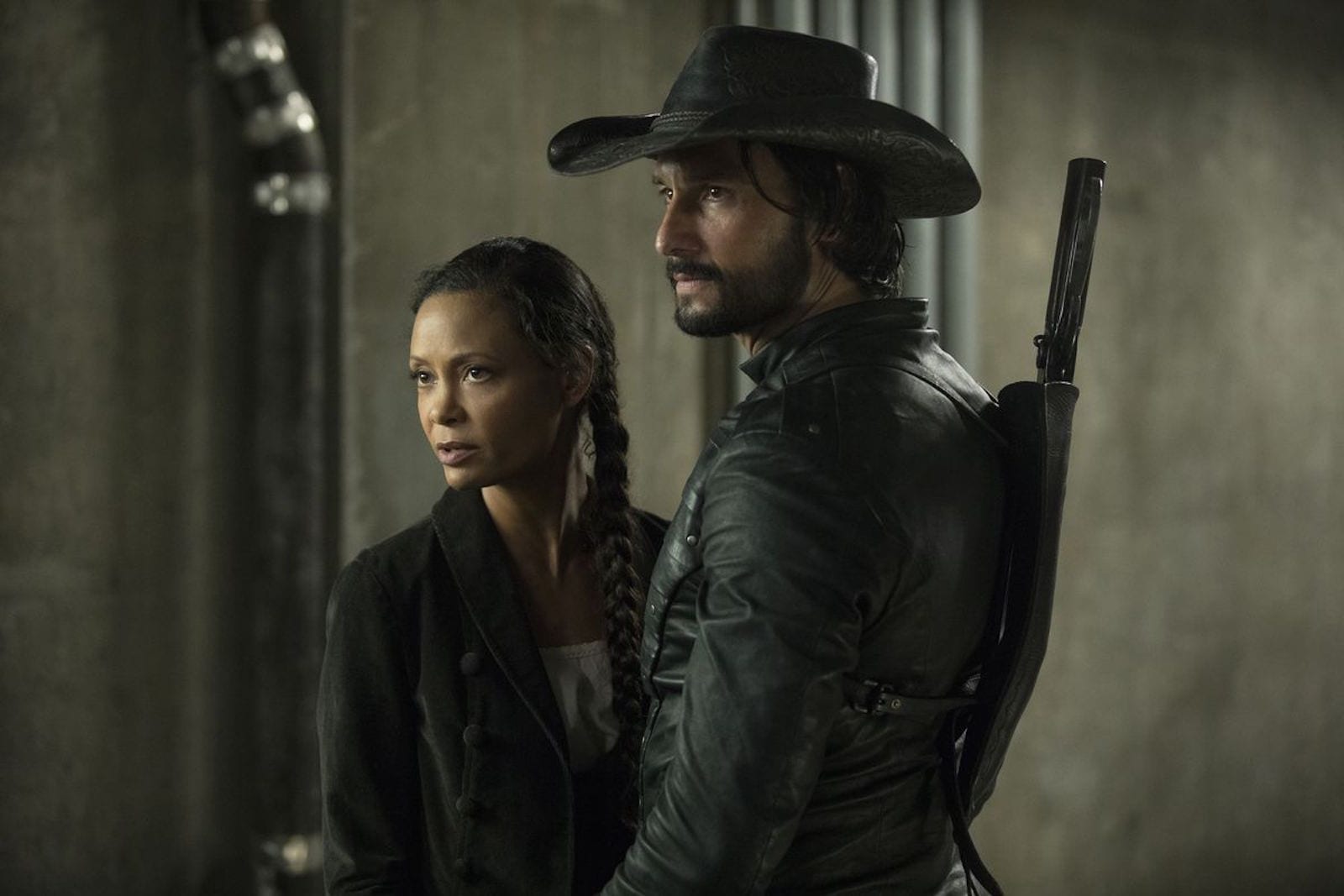
Westworld (HBO)
HBO hoped that Westworld would do to sci-fi what Game of Thrones did for fantasy. We’d say that they were pretty spot on with the assessment.
Based on the Michael Crichton film of the same name, Westworld follows a group of people and androids in an interactive theme park made to look like the Wild West. The park, which caters to high-paying guests, allow their guests to do anything they want to androids without fear of retaliation.
Then said androids start to gain self-awareness, beginning with Dolores (Evan Rachel Wood). Westworld is full of narrative twist and turns along with philosophizing about the nature of humanity, autonomy, and personhood. Westworld offers a deep meditation on all of this and more over its two-season run. Add in some gorgeous cinematography, even the most reluctant sci-fi watcher is hooked.
Vote now


